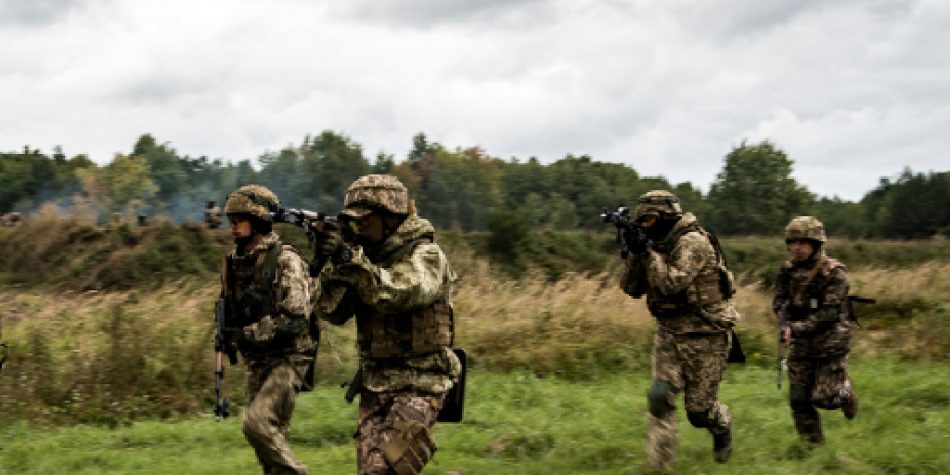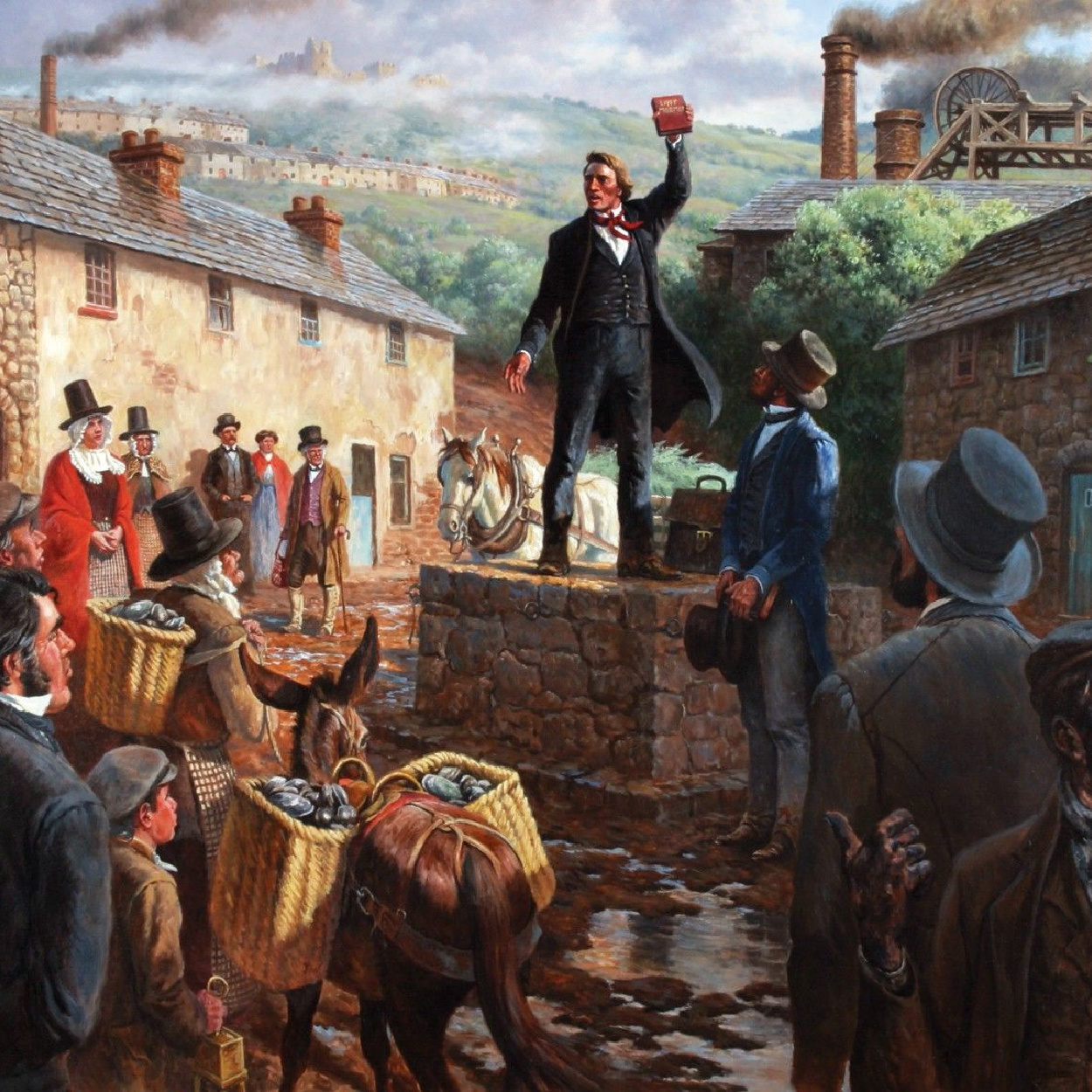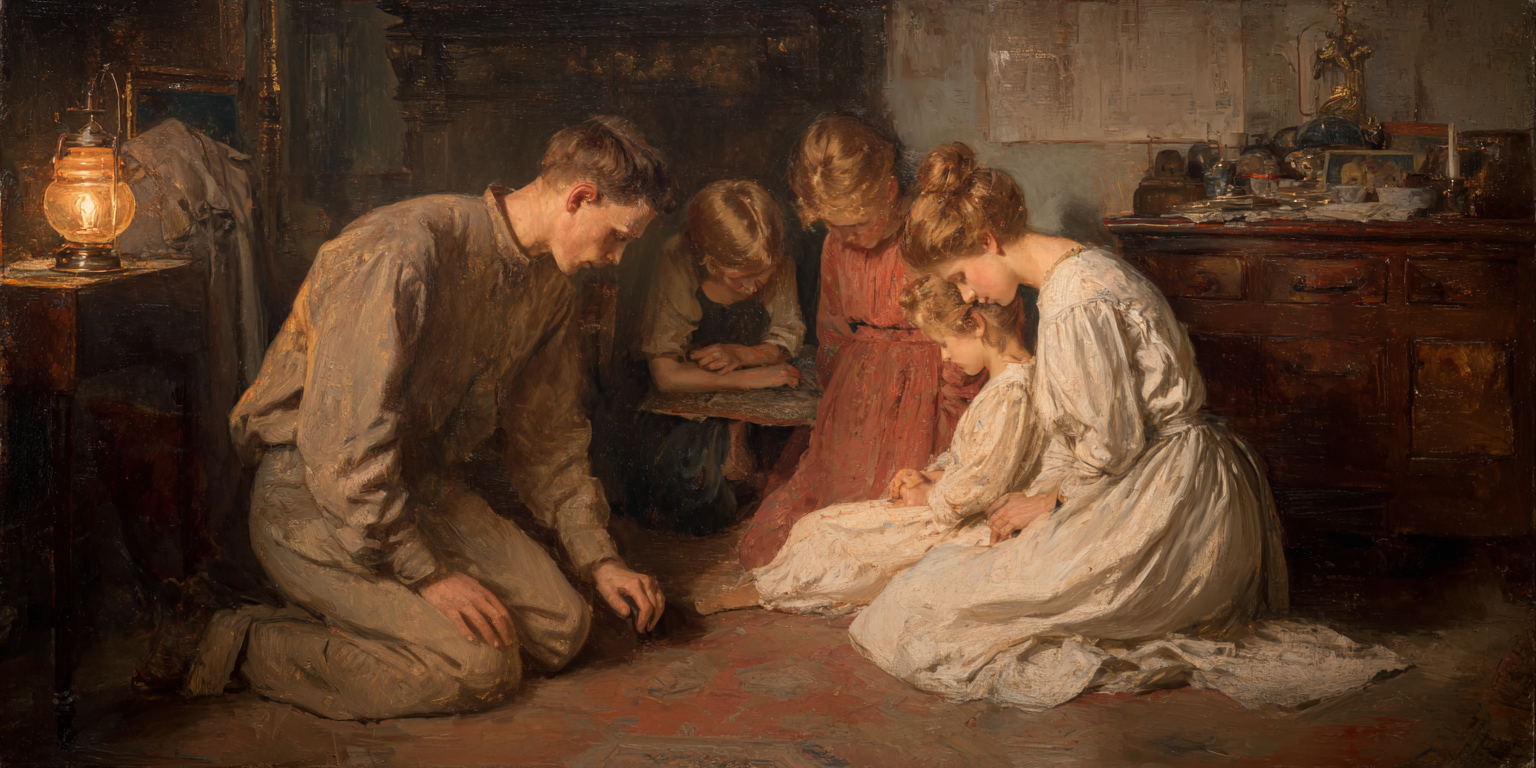The Russian invasion of Ukraine, as the editors already noted, has exposed deep fault lines within American thought. The scriptures Latter-day Saints have chosen to emphasize have exposed similar divides. Many are quoting well-known scriptures such as those to “renounce war and proclaim peace,” the tears of God in response to violence among His children, and others reflecting a general opposition to violence and bloodshed that is true of virtually every faith tradition.
The problem with highlighting those scriptures right now isn’t the aspiration towards peace, since everyone wishes for it. The problem is the failure to recognize that renouncing war in isolation seems to imply opposition to all warfare. And that opposition taken as a blanket rule would mean that the Ukrainian people, in this current moment, are subjected without any real, and effective assistance to the naked aggression and “barbarous cruelty” of their brethren to the east.
But to insist that God’s word in scripture is exclusively a pacifist message is as much of a “wresting” of the actual text as happens with many other modern and popular ideologies. I believe the discourse among people of faith and Americans, in general, might be enhanced by considering scripture and unique Latter-day Saint scriptures articulating a loving defense of rights by active, armed intervention.
The courage of Ukrainians. For instance, modern members of the Church of Jesus Christ can appreciate the frenetic and fearful mood of the ancient Nephites as they witness the unleashed Russian war machine against Ukraine. Many historical theologians had to wrestle with competing ethics in biblical texts (some of which are discussed below). But there are clear examples that provide orientation. An ancient Putinesque figure named Amalakiah exerted relentless, malicious energies to “bring his brethren into bondage.” Were it not for the intensive, concerted, and righteous efforts to fight back led by Captain Moroni—joined by his brethren—it was inevitable that their lives would be stripped of freedom. Moroni rallied his people by asking who would maintain their “rights and their religion”—defending “our freedom, and our peace, our wives, and our children.”
It’s hard to ignore the parallel language for anyone who has heard democratically elected President Zelensky speaking to his people over recent weeks. For instance, he said: “This is our land and our history … [our fight] is about peace and principles, of justice, of international law. It is about the right to self-determination, that every person might determine their own future. It is the right of every society, and of every person, to security, to a life without threats.”
In later scriptural verses, Mormon describes the Nephite “reluct[ance]” to fight, but the simultaneous desire to avoid abandoning their people to the “barbarous cruelty” of the invaders. Underscoring the importance of having the right heart, this people was also reluctant to fight because of their concern for sending so many unprepared souls to meet God. This is the loving heart of just war that has gone too infrequently mentioned in modern Latter-day Saint thought, but which proves key in governing how we should react. Talk about peace cannot be used as a justification for standing idly by while thousands are slaughtered.
A scriptural basis for supportive intervention. But the call to action isn’t simply based on the zeal of the moment or inspiring stories, and it must go deeper than “partisan allegiances and the urgencies of battle.” If a nation is on fire, simply put, one should consider putting out the fire instead of simply providing first aid for burn victims. Beyond the concept of love and a desire to protect one’s neighbors using force, what modern theorists call humanitarian intervention isn’t new or uniquely stated in Latter-day Saint scripture. The concept has developed through the years and starts with the idea that people have either God-given or natural rights. These rights can’t be violated on a personal basis. The Medieval theologian Thomas Aquinas invoked Psalms 82:4 as an impetus for delivering the poor and needy (A Latter-day Saint version of this concept is reflected in sacred text referring to constitutional principles for “the rights and protection of all flesh” premised on the idea that it is “not right that any man should be in bondage one to another.”) Thus, if many people’s rights are being violated through death, robbery, or any other violence, they have a right to appeal to their prince or ruler. As the early modern writer, Hugo Grotius wrote in what sounds like a couplet from King Benjamin, “kings receive authority that men might enjoy justice.” But with other powers and states, the judicial system of one state fails to have authority in another state.
This led to an early form of humanitarian intervention because a loving prince had a duty to intervene even if it was another state’s citizens who were suffering from an unjust ruler. This provision providing for oneself and neighborly help in just war has fallen out of favor with modern thinkers and people for the basic reason that it is too often used and manipulated to the point that any leader can wage war against any state at any time. For instance, Vladimir Putin referenced this notion when he claimed he was protecting the rights of Russian minorities and seeking to deNazify the Ukrainian state. Even classical Chinese theorists like the strongest opponent of offensive war named Mozi, still left the door open for leaders to manipulate their countries into war through the ability to “punish” wrongdoers.
Yet the fact of this principle being manipulated doesn’t mean we should stand by as the innocent are massacred. The scriptures send a stark message about love and hypocrites that apply to the practice of humanitarian intervention too. Contemporary Christian thinkers like Paul Ramsey have noted the expansive nature of love in the story of the Good Samaritan. He asked simply, what if the Good Samaritan happened upon the beaten traveler in the middle of the attack? It is absurd to think in the name of “turn the other cheek” (or “renounce war”), he would have picked up the other cheek of his neighbor to be struck. The love that the Good Samaritan had for his fellow man not only justifies but demands the use of force in such an instance.
Opponents of using force would cite the inhumanity of warfare and the potential death and destruction as reasons to avoid intervention. Those are important concerns, as many historical thinkers took great pains to limit the dangers of war. But to borrow a commonly cited verse from the same mighty American text, God’s mercy “cannot rob” his justice. Overwrought concern for potential future victims of American intervention would have mercy rob justice and rob current victims of nonintervention. In short, reading about love in the Book of Mormon shows the need to love your neighbor by defending their violated rights. Talk about peace cannot be used as a justification for standing idly by while thousands are slaughtered. This is what Thomas Aquinas would call an “evil peace.”
So when Latter-day Saints are moved by compassion for those in Ukraine they must turn away from the temptation to muddy the waters with ideas that the problem is “over there,” can’t be located on a map, is less important than domestic problems, and thus insignificant, too complicated to recognize good and bad guys, that America is too wicked to intervene, or that they love peace and thus oppose intervention. They might instead trust in their compassion and consider Amulek’s teaching to the Zoramites:
For after ye have done all these things, if ye turn away the needy, and the naked, and visit not the sick and afflicted, and impart of your substance, if ye have, to those who stand in need—I say unto you, if ye do not any of these things, behold, your prayer is vain, and availeth you nothing, and ye are as hypocrites who do deny the faith.
This scripture is often cited as a need for those that have faith and follow Christ to back it up with action. That is a good point that most would agree with. Yet love doesn’t stop when it becomes difficult or requires force. In matters of war and peace love is equal parts convicting and motivating. Believers can donate to charities, speak out against human rights abuses, and other similar activities. But if they stop there, they might be like the first responder that provides first aid for a burn victim, without consideration for the conflagration blazing all around them creating more victims. If they blanch at wielding the sword instead of proclaiming peace they might consider John Calvin when he wrote, “If a ruler sheaths their sword and keep their hands unsullied by blood, while the wicked roam about massacring and slaughtering, then so far from reaping praise for their goodness and justice, they make themselves guilty of the greatest possible injustice.”
Among other things, the story of the Good Samaritan should tell us that the Ukrainians are our neighbors we have an obligation to love. The Book of Mormon teaches that if we turn away the needy and suffering, we are as hypocrites who deny the faith. Alma tells us that the justice of God cannot be robbed by mercy, and while controversial, we might consider how our talk of love and peace might rob the Ukrainians by preventing timely and needed intervention to protect their lives. If we choose to ignore that mandate to love our neighbors by failing to take meaningful action to stop their slaughter, we could likewise seem more like hypocrites who have posted memes and scriptures about love and peace but do nothing to show love or bring about peace for those that need it most.

















